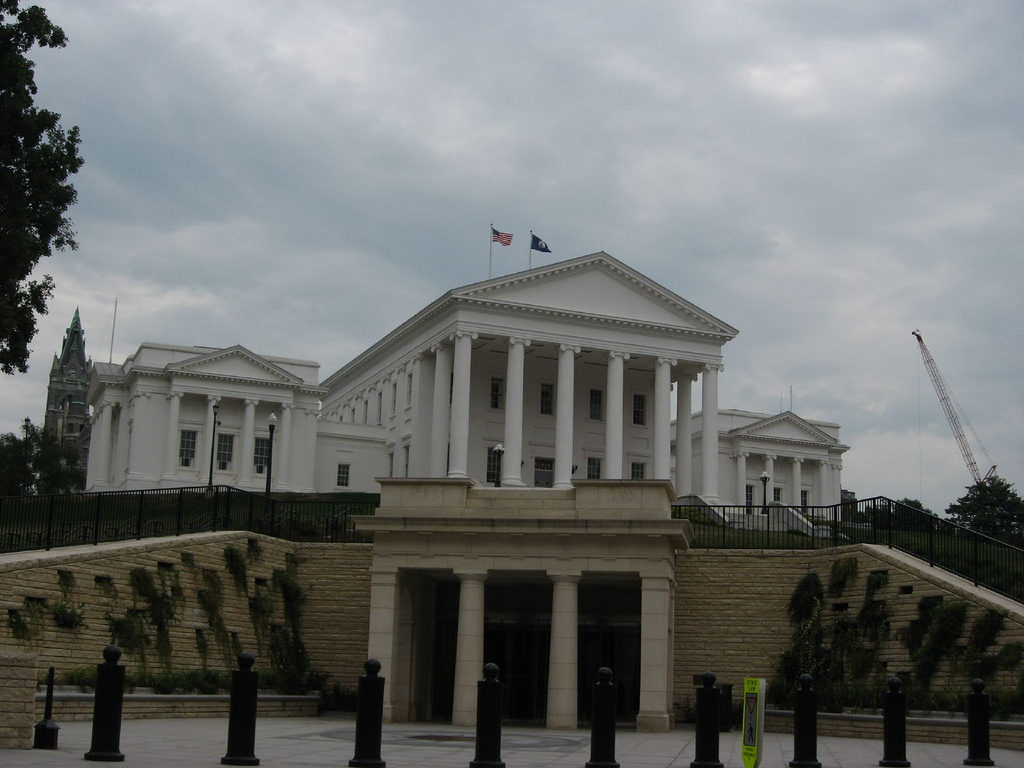As the brutal battle for Medicaid expansion in Virginia continues, a new proposition from Republicans may change the direction of the deal for the General Assembly. House Appropriations Committee Chairman Chris Jones (R-Suffolk) proposed a new vehicle for Medicaid expansion just as the General Assembly entered the final week of its 60-day 2018 session.
According to the Richmond Times-Dispatch, Jones, the architect of the House budget that includes Medicaid expansion, took over a legislative measure on Monday that was the model for the limited expansion of Medicaid in the state. It was also one the Senate included in its version of the budget, but without money to pay for it.
The committee stripped a financial contingency clause from the bill, which linked the enactment of Medicaid expansion to funding in the state budget out of Senate Bill 915, introduced by Senator Siobhan Dunnavant (R-Henrico). Jones then quickly took it to the House floor, passing it with an 18-0 vote, hours before the deadline hit for changes on all legislation.
After the move, Jones explained, “This is to continue the dialogue in the arena of expanding health care coverage for Virginians.” Furthermore, he added, “this keeps another vehicle for further discussion on this issue.”
The Republican leader is the head of a six-member House corps on a conference committee with the upper chamber in effort to reconcile the competing budgets. Currently, there is nearly a $600 million gap between the two.
Discussion on the state budget started on Sunday with a vast chasm between proposals from the House and the Senate in the shape of expanding Medicaid coverage for nearly 400,000 Virginians. Billions in federal funding could inevitably pay for nearly 90 percent of Medicaid expansion after moves from the Trump Administration.
A “provider assessment” is now included in the House budget for Medicaid expansion. This means a tax can be levied on hospital revenues to pay the state’s share, a condition supported by the healthcare industry.
As well, The House version included around $371 million in savings in the budget by using federal dollars to pay for, “indigent care at hospitals, inmate medical costs, community mental health services and other Medicaid programs that currently receive less federal matching money,” according to the report.
The Senate budget, however, does not include an avenue for Medicaid expansion, nor does it impose a provider assessment on Virginia hospitals. Though, two Republican-controlled committees did approve measure from an earlier version of Dunnavant’s bill that would create a hospital tax to pay for limited expansion of Medicaid for people with, “addictions, mental illnesses, or complex medical conditions.”
Moreover, it would allow nearly 2,300 Virginians with developmental or intellectual disabilities to seek a Medicaid waiver. The plan would also extend to those with serious brain injuries and require medical screening for over 500,000 children presumed to suffer from childhood trauma.
Adding to the measure, a statewide transportation service would be created to service people involved in psychiatric emergencies to be evaluated for additional involuntary detention.
Although the Senate does not have the funds to pay for them, Dunnavant’s “Priority Needs Program” was part of the chamber’s budget. Though, they only call the provisions “aspirational goals” as they will only be fulfilled if federal funds are used.
When Chairman Jones went to the House floor to propose the removal of the contingency clause, he reportedly expected a substitute amendment will be proposed to expand Medicaid. If the House moves forward with expansion, the Senate will have the option whether or not to accept it.
In the report, although the Senate boasts a 21-19 Republican majority, a vote could end in a tie due to Senate Finance Committee Co-Chairman Emmett Hanger (R-Augusta) who remains as an unpredictable vote regarding issue that he has long championed.
Hanger voted against Medicaid expansion in the House budget and refused to support a provider assessment in either chamber budget proposal. Though, via a newsletter, he publicly favored that the Senate will approve a more comprehensive approach to expanding coverage while bolstering the struggling federal marketplace and commercial insurance markets.
“With the House including some of the Medicaid expansion components in their budget, this certainly advances the conversation,” he wrote in his newsletter, Emmett’s Virginian Voice.
“The majority of the Senate has still not agreed to any such plan but I believe other conservative senators will emerge to stand with me,” Hanger explained. “If not, I will stand with anyone willing to make bold moves to address the need because it impacts all of us, our budget, and my personal beliefs tell me it is the right thing to do.”
On Friday, Governor Northam stated he is prepared to go forth with an amendment for Medicaid expansion if the General Assembly approves the state budget without it. Democratic Lieutenant Governor Justin Fairfax, who greatly supports Medicaid expansion, may not break an assembly tie vote on the budget itself, but could vote in favor of an executive amendment or the potential House substitute for Dunnavant’s legislation.
Jones explained to his committee early this week that forwarding Dunnavant’s bill to the floor of the House will result in “further discussion” on Medicaid expansion until the time to vote comes. “I assume there would be a substitute that would be presented at that point in time for the body to consider,” Jones said.
The House will adjourn this Saturday, meaning there are just four days left to decide the fate of Virginia’s budget and Medicaid expansion.

